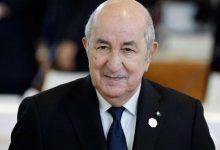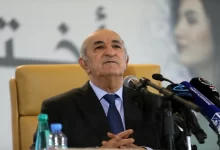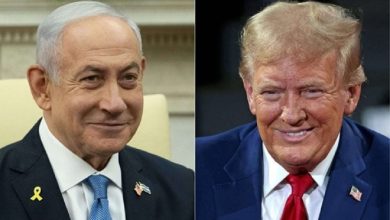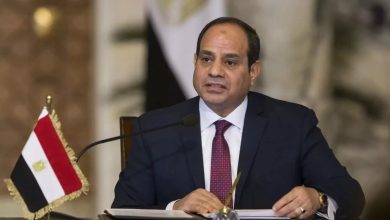Growing Military Ties Between Algeria and the U.S.: A Strategic Shift in North Africa?
A new defense pact and high-level visits signal deepening U.S.-Algeria military ties, reshaping regional security dynamics.
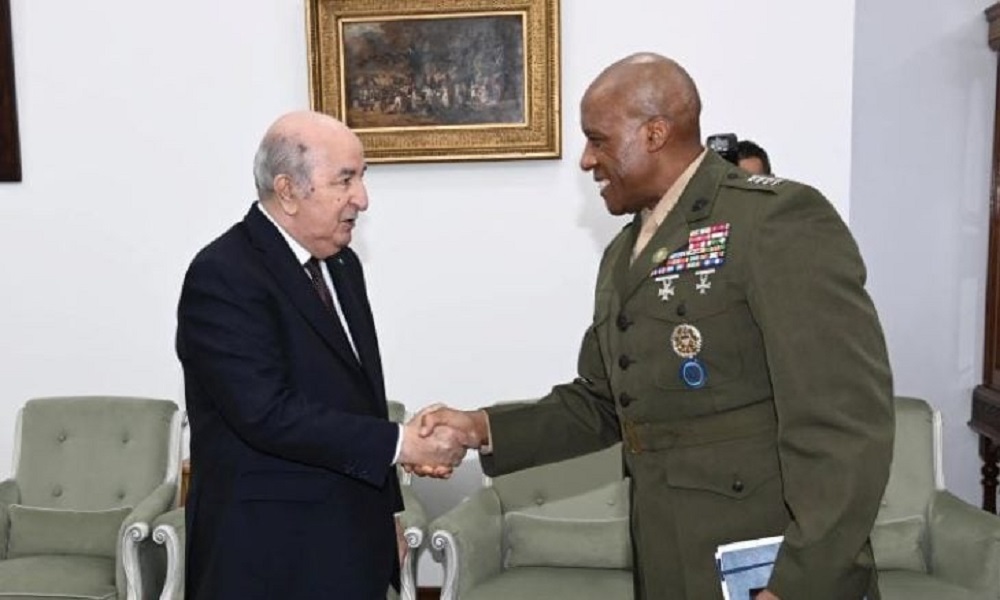
Watan-Indicators of growing military relations between Algeria and the United States are increasing, most notably the frequent visits of the commander of the U.S. Africa Command (AFRICOM), General Michael Langley, to Algeria. These visits culminated last week with the signing of a memorandum of understanding between the two countries’ defense ministries.
This notable activity has been met with continuous praise from military and civilian officials in both countries, describing it as a “positive dynamic” in military cooperation, reflecting the two parties’ desire to move forward in developing their partnership.
Security and stability in North Africa and the Sahel region remain central to bilateral discussions between the Algerian and U.S. military leaderships, drawing the attention of observers who are analyzing the regional and international implications of this development.
The growing Algerian-American cooperation also raises many questions about Algeria’s ability to manage its strategic relations with both the East and the West, especially given its historical military alliance with the former Soviet Union and Russia today.

Indicators and Trends
Since the 9/11 attacks in 2001, security relations between Algeria and the U.S. have strengthened, leading to the launch of a regular strategic dialogue on counterterrorism. Washington views Algeria as a key international player in combating terrorism and violent extremism.
Signs of increasing military cooperation were evident in the participation of an elite Algerian naval unit in the joint maritime exercises “Phoenix Express,” organized by AFRICOM last summer in Tunisia over several days.
The indicators of military cooperation further increased following General Langley’s repeated visits to Algeria—five times since 2020, including two recent visits in July 2024 and January 2025.
Strategic Memorandum of Understanding
During his latest visit, Algerian Army Chief of Staff General Saïd Chengriha and General Langley signed a memorandum of understanding in the military field between the two defense ministries.
The contents of the memorandum were not disclosed, but both parties described it as the “cornerstone for achieving all shared security objectives.”
During his meeting with Algerian President Abdelmadjid Tebboune, Langley stated: “This memorandum will allow for deeper and stronger relations between our two countries, thereby enhancing regional and international security and peace.”
He added: “Algeria is a leading country in the region, and all other nations will benefit from this. The United States and Algeria will prosper together and contribute jointly to protecting people.”
On January 28, Algerian Foreign Minister Ahmed Attaf and his U.S. counterpart Marco Rubio, in a phone call, expressed their “appreciation for the positive momentum in Algerian-American relations.”
The two ministers agreed to unite efforts to strengthen bilateral cooperation in the fields of defense, energy, agriculture, science, and technology.

Seeking an African Ally
Regarding the nature of the growing relationship between the two countries, Algerian military expert Akram Kharief noted that while it is “good, it has not yet reached the level of excellence.”
Speaking to Anadolu, Kharief explained that the increased military engagement between Algeria and Washington “indicates the existence of a framework for negotiation, discussion, and coordination between the two armies.”
As for the future implications of the memorandum, Kharief stated: “The presence of the U.S. military in Africa is declining, and this trend may accelerate under President Donald Trump’s administration.”
He added: “For this reason, the U.S. military needs to rely on major African armies, including the Algerian army.”
New Regional Arrangements
Ali Rabij, a professor of international relations, pointed out that the AFRICOM commander’s visit to Algeria and the signing of the memorandum of understanding came just two days after Donald Trump assumed the U.S. presidency. This also coincides with complex international developments and new security arrangements in the Sahel region following the expulsion of French forces.
Speaking to Anadolu, Rabij explained: “Algeria is one of the largest countries in the region, bearing significant security and strategic burdens in countering terrorist organizations, preventing their expansion, and stopping the region from falling into their hands.”
He emphasized that “Washington and Algeria are among the countries most committed to peace, security, and counterterrorism, making the signing of this memorandum a tool for achieving common objectives.”
Pragmatism and Rationality
Despite its historical and strategic alliance with Moscow in armament, training, and military cooperation, Algeria has remained open to cooperation with the United States through arms purchases and joint training programs.
Following the signing of the memorandum, the Algerian army chief praised the “positive dynamic” of military cooperation between the two countries and their “mutual willingness to elevate this partnership to the highest levels in a way that serves both nations’ interests.”
Chengriha stated: “We appreciate the rational and pragmatic nature of Algerian-American military cooperation, which is based on constructive dialogue aimed at establishing a sustainable partnership.”
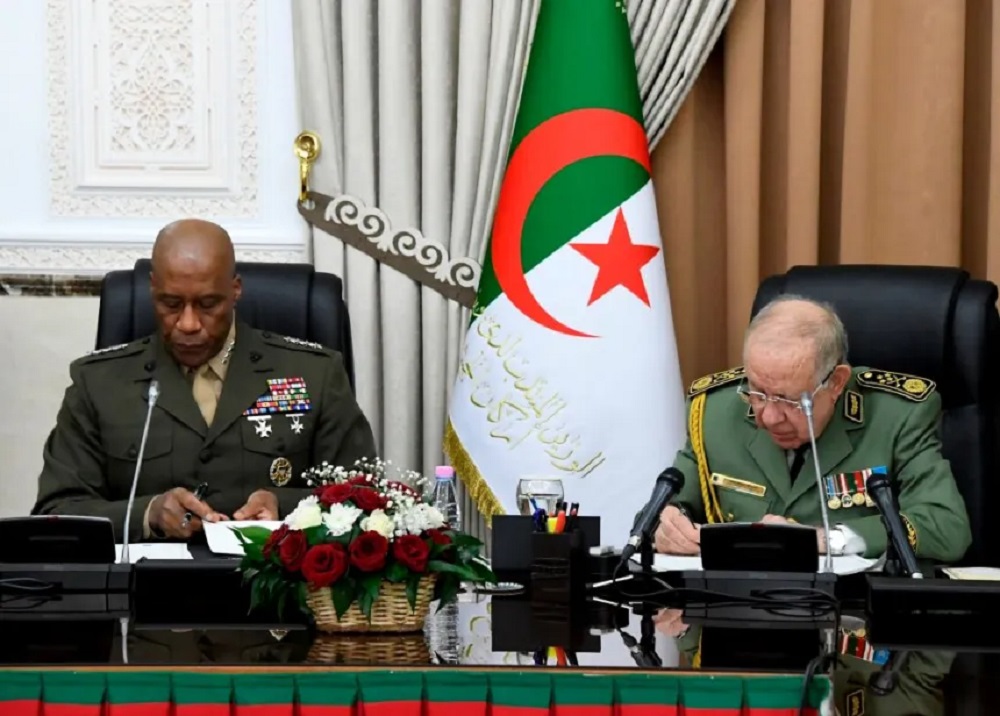
Regarding Algeria’s management of its strategic relations amid the global polarization between the East (China and Russia) and the West (United States), Rabij asserted that Algeria “always seeks to maintain equal distance from all sides, despite its strategic relationship with Russia and the former Soviet Union.”
He added: “The contents of the memorandum have not been disclosed, making it difficult to determine whether it represents a comprehensive counterterrorism and organized crime framework or if it is merely a standard agreement aimed at deepening bilateral cooperation without competing with other allies.”

